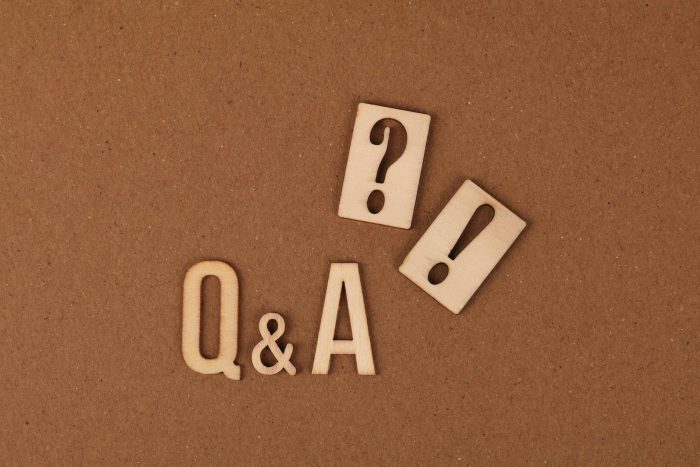Too many people, I feel, are too confident about themselves and their points of view. They are not really able to listen, believing they are basically always right. This, in my view, is a problem for good relations among people, and for dialogue and peace in the world. Not only in my view, actually, as many sages from the past and present have reiterated the importance of doubting and questioning. I can think, among others, of the Buddha, Krishnamurti, and even one Riccardo Colella, an unknown ‘philosopher’ from Naples, a neo-sceptic, who affirmed:
In the world there are question marks and exclamation marks, the soldiers of doubt and those of absolute certainty. When you come across a question mark, don’t be afraid – he/she must definitely be a good person, a democrat, a person with whom you can discuss and disagree. Exclamation marks, on the other hand, are dangerous – they are the so-called ‘men of faith’, those that sooner or later take the ‘irrevocable decisions’. Now remember what I tell you: faith is violence, any kind of faith, religious, political and related to sport. Behind every war there is a man of faith who shot the first shot. In Ireland, in Lebanon, in Iran Faith goes around with a sickle in her hands and clothes drenched in blood, and when she kills it is always in the name of love. My dad taught to me that doubt is the father of tolerance and curiosity. […] For those who have faith it is as if they knew everything already from the beginning – they don’t have any doubts, they are not capable of wondering […]. Those who have faith are not ready to acknowledge their mistakes, and without the help of mistakes we are nobody. Faith is prompt, blind and absolute obedience. (Luciano De Crescenzo, 1986, Storia della filosofia greca (History of Greek philosophy), 205-206)
I love this quotation, as it says simply but effectively what the problem is with people who do not doubt, the ‘men of faith’, as Colella calls them. I come across these ‘exclamation marks’ again and again, people that affirm things vehemently and sometimes even aggressively, often only based on a few newspaper articles they have read, some information they got from dubious TV programmes, or, even worse, from some social media, where fake news abound. They do not normally listen to real experts or to wise and sensible people. Unfortunately I come across this attitude even in academia, as I myself teach at a university. One would think that academia, particularly humanities, should be all about teaching and research based on trying to provide some tentative and often necessarily subjective answers to the thousand questions and problems that we face in this world. Research whose results can always be improved and perfected by other research, of course – nothing is absolute, mistakes are made, new theories are developed. Academics should be always open to debate, to exchange of ideas, even when they do not agree with them. Academics should be prepared to change their point of view when faced with compelling evidence. Well, my impression is that as time goes by, more and more academics seem to be rather rigid, narrow-minded and less capable of new (and useful) ideas than in the past, and sometimes too dependent on what the ‘luminaries’ have affirmed in their articles. If I can refer to my own experience, I once came across an academic article written by a famous Italian sociolinguist (sociolinguistics is my area of research) affirming something that was based simply on anecdotal evidence, something that was evidently wrong as further research (and even simple observation) showed, which other ‘minor’ academics were quoting again and again without any critical evaluation whatsoever. It would have sufficed that they looked at the shop signs around them to realize that the professor’s statement that the local ‘dialects’ were quite visible in the linguistic landscape (the written signs in urban centres) was problematic. But no, he was too famous, and these academics were too conformist to dare criticizing him. Even some of my articles were rejected not because there was anything wrong in what I wrote (at least I didn’t get any clear criticism about the contents), but simply because they did not conform to the general, and often even personal (the reviewer’s) opinion. Luckily most of these articles were later published in different (and perhaps more open-minded) journals…
I believe that if we were prepared to doubt a little more, to accept that there might be other ways, we would live in a much better world. The only case where we can suspend our doubting, I believe, is with universal principles: the sacredness of life, peace, love… Ironically, it is with some of these very universal principles that some ‘men of faith’ start doubting… ‘But killing is bad!’ ‘Well, yes, but in this case…’ Very sad!
In any case, even if we do not agree at all with something, perhaps we should learn to start our discussion with a smile and a ‘I can see what you mean’ or ‘you may be right, but…’ That would definitely help communication and good relations.







Read 0 comments and reply